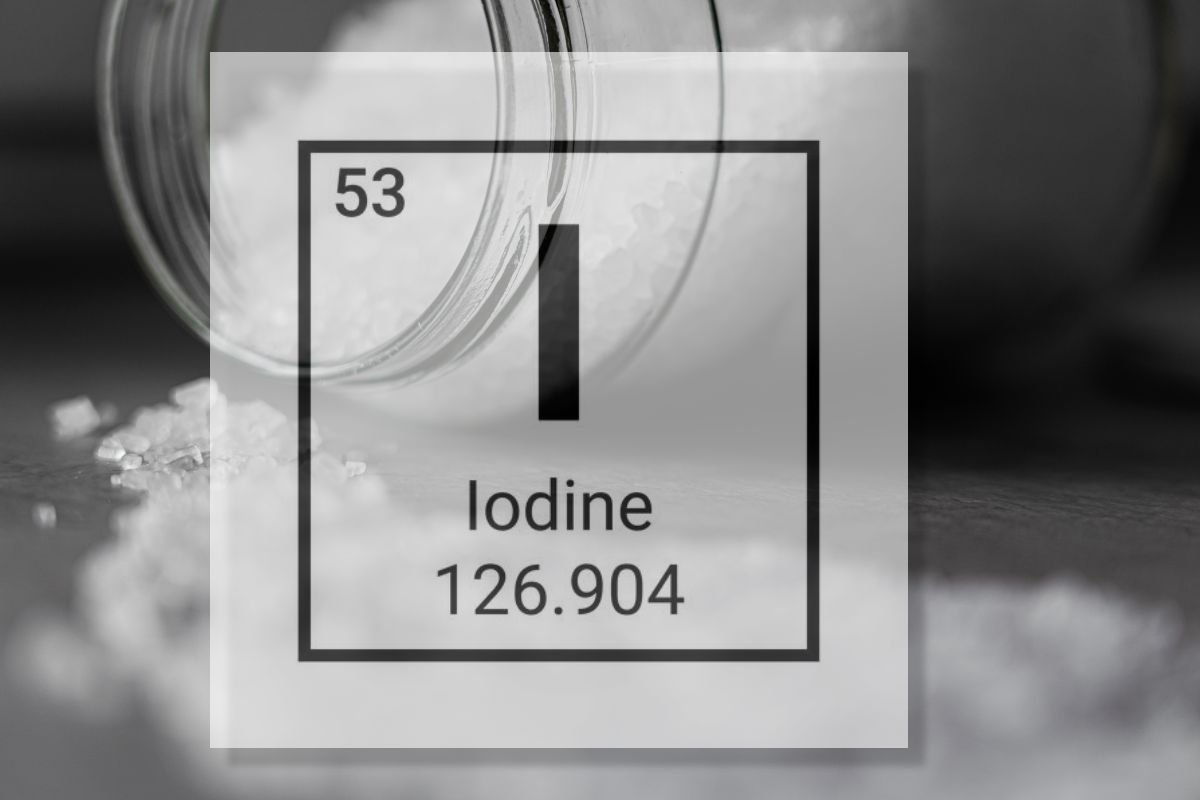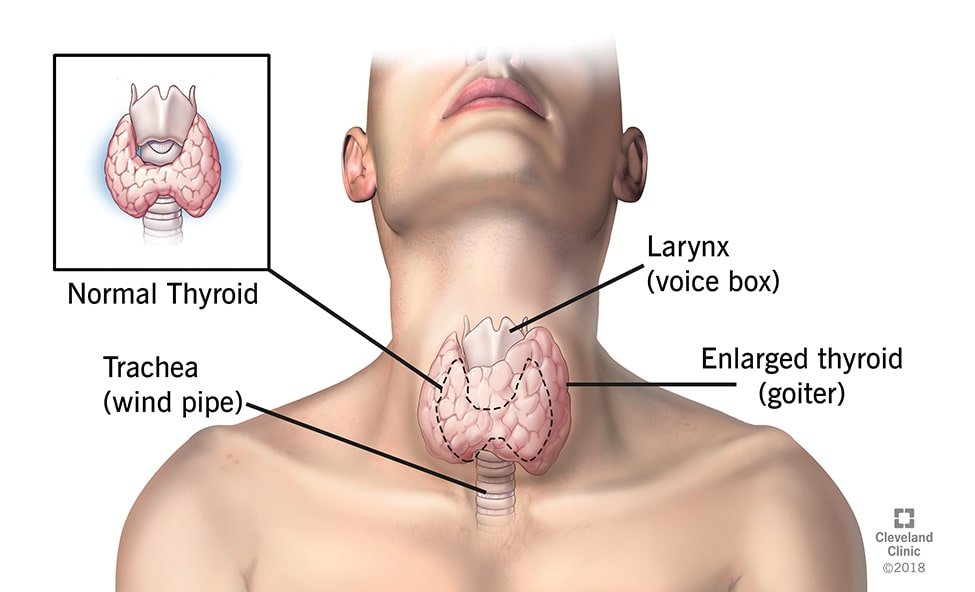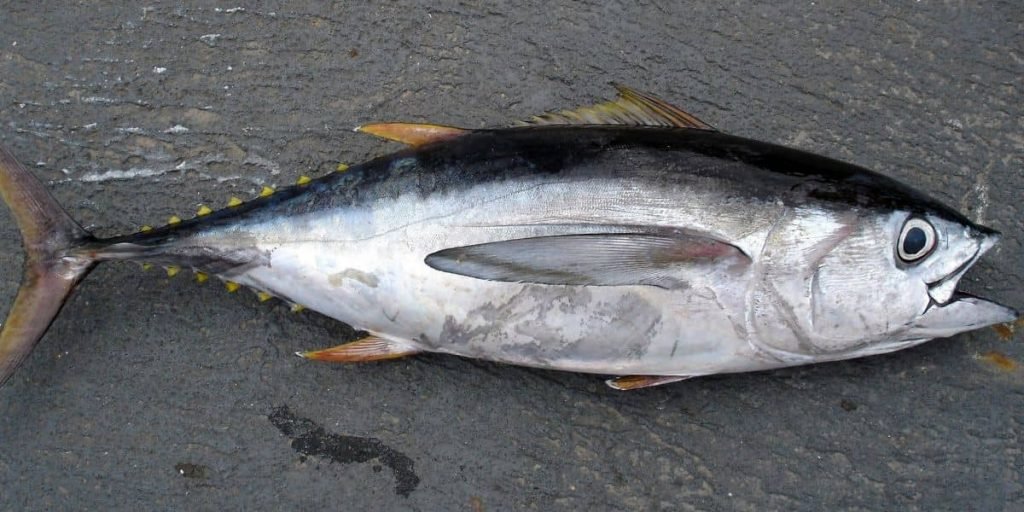Iodine (I): What is, Properties, Benefits And Side Effects

Iodine is a trace element found in soil and in the waters of the sea. There are a number of herbs, especially those that grow near or in the sea, such as edible seaweed, that contain iodine. .
In our daily life, however, we get iodine from sea iodized salt.
It is important to get enough iodine on a daily basis through diet as it contributes to hormonal balance, fetal development and more.
If your iodine levels are low your healthcare practitioner may suggest taking iodine through a dietary supplement. It is advisable not to take an iodine supplement unnecessarily, especially if you have not had tests first to check for any deficiency.
Taking large amounts of iodine causes a number of unpleasant and dangerous side effects. This is why it is good to know the recommended daily dosage, depending on age.
In this article we shed light to everything you need to know about Iodine.
Iodine Health Benefits
The properties and role of iodine in our health
Iodine is considered an essential trace element as our body cannot synthesize it on its own and must be obtained through diet.
It is absolutely essential during pregnancy and the smooth development of the fetus as it protects against future potential health problems.
Below we will look at the key properties and health benefits of iodine for the body at different age stages.
Contributes to the proper functioning of the thyroid
Iodine plays a key role in the health of the thyroid gland (source). The thyroid is located at the base of the neck at the front and regulates the body’s hormonal profile. Hormones associated with the thyroid regulate metabolism, heart health and more.
To synthesize hormones the thyroid uses small amounts of iodine. Without iodine, hormone production is drastically reduced. When the thyroid is underactive for a long period of time we may be led to hypothyroidism.
Given the abundant amount of iodine in the Western diet, iodine deficiency is relatively rare nowadays.
There are a number of iodine-fortified foods, and good sources are dairy, fish and seafood. Rich sources of iodine are also grasses that grow near the sea and in soils that are not iodine-poor.
Adequate levels of iodine ensure proper functioning of many vital functions in the body. However large amounts of iodine are associated with serious side effects. Thus overconsumption of iodine supplements should be avoided.
Reduces the risk of goiter
According to Mayo Clinic, Goiter is the unusual enlargement of the thyroid gland. It is easily noticed as it looks like a swelling in the throat. Goiter can be the result of hypothyroidism or hyperthyroidism. Two conditions that indicate under- or over-functioning of the thyroid gland.
Another possible cause of goiter is the presence of nodules in the thyroid gland.

In some cases goiters are directly related to iodine deficiency. However, these cases nowadays are rare as in the western diet several foods contain iodine, except for iodized salt which is on our table and we use it in our cooking every day.
Goiters due to iodine deficiency are resolved by iodine supplementation through diet or by taking iodine supplements.
Helps regulate the thyroid when it is over-functioning
Your doctor may recommend taking radioactive iodine to treat hyperthyroidism (overactive).
Radioactive iodine is given orally and helps to destroy thyroid cells to reduce the overproduction of hormones.
A potential risk is the destruction of more cells than needed, which will lead to hypothyroidism. This is the main reason why this treatment is recommended after drug treatments have failed.
👉 Radioactive iodine has absolutely nothing to do with iodine supplements. Under no circumstances should one take an iodine supplement if one has been diagnosed with hyperthyroidism.
It helps in the treatment of thyroid cancer
Radioactive iodine may also be used to treat thyroid cancer, based on the same theory.
Taking radioactive iodine orally kills both normal and cancerous cells of the thyroid gland. Such treatments may be given after surgery to ensure that any remaining cancer cells have been eliminated from the body.
According to the American Cancer Society, radioactive iodine treatments greatly increase the chances of survival in people with thyroid cancer.
Contributes to the nervous development of the fetus during pregnancy
Iodine needs during pregnancy are increased. This is because iodine is essential during fetal brain development.
A review found that mothers who were iodine deficient during pregnancy were more likely to give birth to children with lower IQs as well as learning disabilities.
The recommended daily dose of iodine during pregnancy is 220mcg.

In any case if you are pregnant it is advisable to consult your gynaecologist before taking any iodine supplement.
It would be advisable to check iodine levels after delivery as well. Iodine needs are also increased during the period of breastfeeding. The recommended daily dose is 290 mcg.
This is due to the needs of the newborn during the first few months of life. For normal brain development, 110 mcg of iodine is required, which is obtained through breast milk.
Improves the cognitive functions of the brain
Similar neurological benefits provided by iodine during pregnancy are observed during the first years of the child’s life.
Adequate levels of iodine significantly reduce the risk of mental problems and developmental disorders in children (source).
A balanced diet for a child with regular consumption of fish and seafood ensures adequate iodine intake. However, your pediatrician will guide you accordingly if you think there may be a deficiency.
Read Also: The Food That Protects Our Brain – How Often To Eat It
Contributes to healthy weight and normal growth of the newborn
As with brain development, iodine sufficiency during pregnancy is associated with healthy baby weight at birth.
A study on pregnant women with goiter found that giving 400mg of iodine for six to eight weeks helped improve clinical presentation compared to those who were deficient. In addition, normal weight was observed for the newborns born.
It must be noted however that this study was done up in developing areas of the world where iodine deficiency was documented in the general population.
In any case, extra iodine intake during pregnancy should only be taken on the advice of a doctor, as increased iodine levels cause side effects.
It may help in the treatment of fibrocystic breast disease (fibrocystic breasts).
It is possible that iodine supplementation may help in the treatment of fibrocystic breast disease.
This condition is not a disease. It is a common benign condition where the breast contains a few or many small lumps and usually affects women of childbearing age. In some cases there may be pain on palpation.
There is evidence that iodine helps in the treatment of fibrocystic breasts. However, the administration of iodine at a specific recommended dosage should be done on the recommendation of the treating physician.
Provides protection after exposure to nuclear accidents
In cases of a nuclear alert, the World Health Organization (WHO) recommends the use of potassium iodide (KI) to protect the thyroid gland from radioactive damage. Pharmaceutical formulations are available in some states, both in liquid and tablet form.
It is speculated that the earlier such a formulation is taken, the better the thyroid is shielded in such situations.
However, taking such preparations carries risks and may cause side effects such as severe stomach upset, inflammation and allergic reactions.
Helps in the treatment of infections
Iodine solutions can be used topically to treat infections (source). One of the properties of iodine is destruction of bacteria that grow after skin cuts and small wounds.
Topical use of iodine should not be used on newborns as well as on deep cuts, animal bites and burns.
In any case before topical use read the instructions for use carefully or consult your pharmacist.
👉 You may find this PDF from Wounds International useful. It has all the information you need to know on Iodine and wounds, when to apply and other important information for every person and professional
Recommended Daily Intake
How much iodine do we need daily?
According to the National Institutes of Health (NIH), the recommended daily dosage for iodine intake based on age is:
| AGE | RDI in micrograms (mcg) |
| Birth – 6 months | 110 mcg |
| Newborns 7–12 months | 130 mcg |
| Children 1–8 years | 90 mcg |
| Children 9–13 years | 120 mcg |
| Teenagers over 14 years old and adults | 150 mcg |
| Pregnant women | 220 mcg |
| Breastfeeding mothers | 290 mcg |
Iodine Deficiency
What are the symptoms of iodine deficiency?
Iodine deficiency is diagnosed by a urine test.
The main symptoms associated with low iodine levels are mainly related to thyroid gland function (source).
Specifically:
Iodine Toxicity
The maximum levels above which iodine toxicosis occurs
Excessive iodine intake leads to toxicosis of the body with a number of undesirable side effects. The total amount of iodine is calculated by taking into account the sum of all sources:
| Age | Maximum Limit in micrograms (mcg) |
| 0 – 12 months | – |
| 1-3 years | 200 mcg |
| 4-8 years | 300 mcg |
| 9-13 years | 600 mcg |
| 14-18 years | 900 mcg |
| Adults | 1100 mcg |
⚠️ These limits do not apply to people who have been diagnosed with iodine deficiency or who suffer from a disease and have been given iodine on prescription by a doctor in high doses.
Iodine Side Effects
Possible side effects of excessive iodine intake include:
⚠️ People with thyroid problems should not take iodine unless recommended by their doctor.
👉 Usually children and the elderly are more likely to experience side effects from iodine overdose.
Iodine Supplements
When should a person take an iodine supplement?
Your doctor is primarily responsible for telling you whether you should take an iodine supplement.
The safest way to know if you should take an iodine supplement is to have a urine test. In any case, as people with specific thyroid lesions should NOT take iodine by themselves. The person most responsible for the recommendation is your doctor.
In any case, some recommended Iodine Supplements are:
1️⃣ Optimox Corporation Iodoral 12.5 mg – 90 Tablets
2️⃣ Organic Kelp Powder, 1 Pound (Natural Iodine Supplement)
3️⃣ Natures Way Kelp 600 mg – 100 capsules
Foods rich in iodine
Below is a detailed list of foods that are rich in iodine.
👉 The iodine content of dairy products depends on the method of preparation of the product and the place where the milk is collected. So there are exclusions depending on the brand.

Final Take
Iodine is a trace mineral that may be found in soil and seawater. Iodine is found in a variety of plants, particularly those that grow near or in the ocean, such as edible seaweed.
We receive iodine through ocean iodized salt in our daily lives.
It’s critical to acquire enough iodine in your diet on a regular basis since it helps with hormonal balance, fetal development, and more.
If overall iodine levels are low, your health professional may recommend taking an iodine supplement.
Large doses of iodine have a number of undesirable and even deadly adverse effects. This is why knowing the appropriate daily dose for each age group is important.
